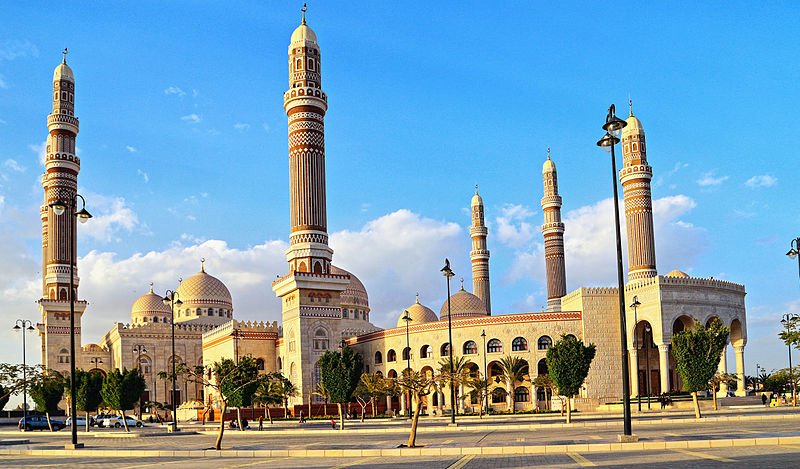Religion in Yemen

Excerpts from an aritlce by Daniel Lyman
The Republic of Yemen is an Islamic state located on the southern coast of the Arabian Peninsula. Virtually all of its 25 million citizens are Muslim. A majority (65%) follow Sunni Islam, and the remainder adhere to the Zaydi order of Shia Islam. The Zaydi order is unique to Yemen. Various minor sects of Islam are also practiced in isolated communities, particularly in the northern regions of the country.
Less than 1% of the population adheres to various other religions, including the Bahá’í faith, Hinduism, and Christianity. The country is also home to an indigenous Jewish community, though its population has declined significantly over the last century. Once numbering in the tens of thousands, the Jewish population now numbers approximately two hundred individuals living in two communities, in Sanaa and Amran.
Historically, the northern and southern regions of Yemen were politically and religiously divided. While the two regions have been unified for almost 25 years, underlying tensions remain, occasionally resulting in open conflict. Recently the country was swept up in the Arab Spring movement, with mass protests, primarily led by the younger population, against the government, demanding greater access to and protection of basic rights. While the previous president was deposed, the freedoms and social gains sought by the protestors have yet to be realized.
While freedom of expression and opinion are protected under the Yemeni constitution, there is no provision specifically guaranteeing the right to religious freedom. Article 1 of the constitution declares Yemen to be an “Islamic . . . sovereign state” and “part of the Arab and Islamic Nation”. In Article 2 Islam is declared the official religion of the state. The constitution also specifically declares that Islamic Sharia law “is the source of all legislation”. Women’s rights are also declared to be stipulated by Sharia.Though the constitution guarantees freedom of thought, expression, and participation in society, other provisions provide opportunities for significant government influence, including in religious belief. Article 54 provides that the “state shall give special attention to young people and protect them against perversions, provide them with religious, mental and physical education, and the appropriate environment to develop their aptitude in all fields”.
The constitution also establishes the influence of religion in the political process. Article 64 requires that representatives elected to the legislature must fulfill their religious duties. Further, Article 106 requires that the president must “practice his Islamic duties”. All government officials must swear “to adhere to the Quran and the traditions established by Prophet Mohammed”.